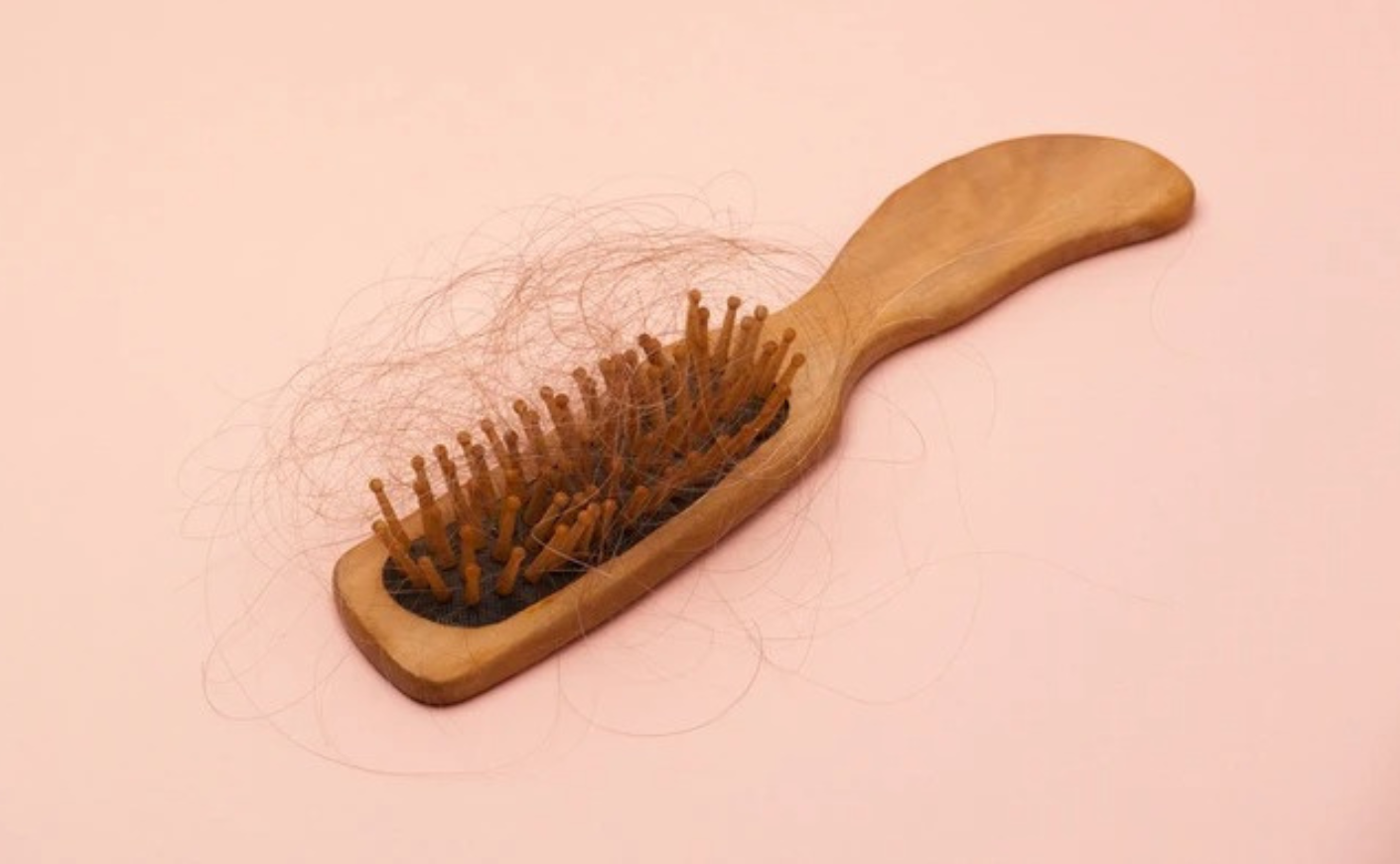Are your locks looking less thick these days? Have you noticed your hair changing since "the change"? Readers of our Body and Soul newsletter sent in dozens of thoughtful questions about reversing hair loss, defeating dandruff, and more — and we brought in an expert for answers.
Dr. Divya Shokeen is a board-certified dermatologist and hair transplant surgeon who’s earned thousands of followers across social media for her brilliant hair and skincare advice. Below, she takes on your queries about thinning; itchy, dry scalps; and what works — and what doesn't — when it comes to reversing hair loss.
Would love to know how to help thinning, post-menopausal hair. Is it OK to use minoxidil, and for how long?
Dr. Shokeen: Yes! Minoxidil (aka Rogaine) is FDA approved for treating hair loss in women and can be effective for post-menopausal thinning. It’s typically used once or twice daily and can be applied directly to the scalp. It may take three to six months to see results, and it must be used consistently to maintain the benefits.
Finasteride is a prescription medication that’s sometimes used for female-pattern hair loss, though it’s more commonly prescribed for men. Some women also find that addressing hormonal balances through hormone-replacement therapy can help, but you should discuss this option with your healthcare provider.
I’ve also found that NatureLab Tokyo’s Saisei Return To You Bundle can combat thinning hair. It’s specifically formulated with a combination of biomimetic peptides that help to strengthen strands and botanical extracts, like red clover and rosebay, which nourish the roots and balance the scalp’s microbiome to promote healthy, thicker hair growth.
Is rosemary oil good for hair growth?
Rosemary oil has been shown in only a few studies to promote hair growth, possibly by improving circulation to the scalp and stimulating hair follicles. It's often compared to 2 percent minoxidil, which is not nearly as potent as higher concentration formulas like those containing 5 percent minoxidil.
Always talk to your doctor before starting the therapy, as it can irritate the scalp or induce an allergic reaction. Rosemary oil should be diluted before applying it to the scalp. You can mix a few drops (five to 10) in a carrier oil like jojoba, coconut, or olive oil. Massage the solution gently into the scalp, then leave it on for at least 10 to 15 minutes before washing it out.
While rosemary oil can be used as part of a regimen, it shouldn’t replace conditioning treatments or shampoos. You can use it alongside your regular products.
I’ve heard that dermarolling can stimulate hair growth. Is this true?
Dermarolling or microneedling has been shown to improve hair growth in some people, especially when combined with topical treatments like minoxidil. The tiny needles stimulate the scalp, promote circulation, and encourage the production of collagen, which can help hair follicles stay healthy.
Microneedling should be done carefully. A dermaroller or dermastamping with needles around 0.5 mm in size is typically safe for the scalp. You can use it a few times a week, but make sure to disinfect the tool before and after each use.
What can I do to defunk a flaky scalp?
A flaky scalp can be caused by dryness, dandruff, or seborrheic dermatitis. When you experience dryness, it’s often because of a buildup of yeast called Malassezia. Anti-dandruff shampoos can be incredibly helpful in mitigating this. You should also avoid harsh shampoos that contain sulfates or alcohol, as they can dry out the scalp.
What vitamins or supplements do doctors recommend for hair growth?
The following nutrients are essential for hair health, but you should always check with your doctor before starting any supplement regimen to ensure it's safe and suitable for your needs.
- A deficiency of vitamin D is linked to hair thinning, so ensuring your levels are adequate may support hair health.
- Low iron levels can lead to hair thinning, especially in women.
- Zinc is a key mineral for hair health and growth.
- Omega-3 fatty acids support overall scalp health and hydration.
I'm a 64-year-old woman with thinning hair. What regimen — shampoo, conditioner, leave-in treatment — should I use?
Hair growth always starts with a healthy scalp. Use a gentle, sulfate-free shampoo that includes peptides — such as NatureLab's Perfect Smooth Shampoo — with strengthening additives that can help produce stronger, healthier hair. For a conditioner, pick something lightweight, ideally one that adds volume without weighing down your hair. Avoid anything too heavy or greasy. A leave-in conditioner or lightweight styling product can help protect the hair. Look for treatments with ingredients like panthenol (pro-vitamin B5), which can strengthen and moisturize.
You also want to avoid using a curling iron or other tools that use heat. Excessive heat can damage fragile, thinning hair. If you do style, use a heat-protectant spray. Be gentle with your hair: Avoid tight updos, harsh brushing, and roughly towel drying your hair. Use a wide-tooth comb and be careful while detangling.









